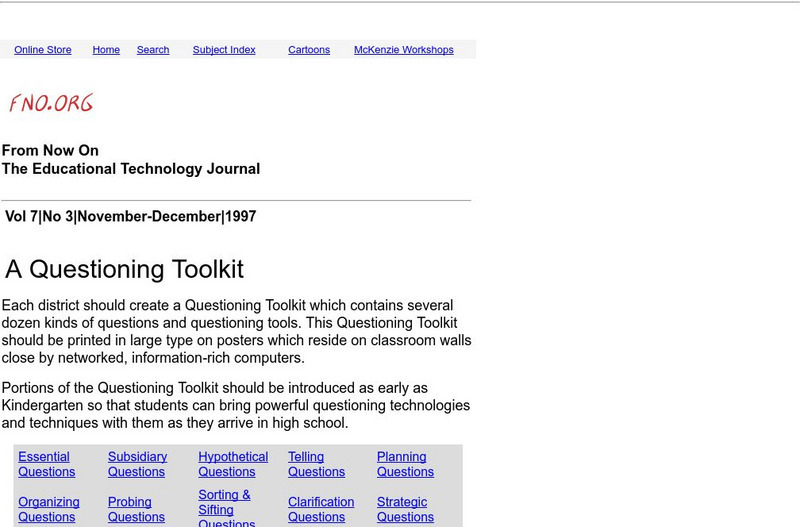ReadWriteThink
Read Write Think: Seed Discussion Organizer
A printable graphic organizer students can use to organize their thoughts when a new concept is introduced. Seed Discussion categories include things the learner does not understand, things that are surprising or interesting, new...
ReadWriteThink
Read Write Think: History Comes Alive: Developing Fluency and Comprehension
Let the power of imagination and inference serve as a "time machine" to bring Benjamin Franklin into the classroom! History and science come to life in a dialogue with Franklin the inventor, developed through lesson activities that...
ReadWriteThink
Read Write Think: Literature in Nonfiction Inquiry
This lesson plan involves students working in groups after reading a work of literature to develop text sets. Included in the lesson plan is an overview, practice, objectives, resources, preparation, and more.
ReadWriteThink
Read Write Think: Technical Reading and Writing Using Board Games
Contains plans for a game that helps teach technical reading and writing while reviewing a novel that learners have read. In addition to objectives and standards, this instructional plan contains links to sites used in the lessons as...
ReadWriteThink
Read Write Think: Using Science Texts to Teach the Organization of Nonfiction
Contains plans for three lessons that use science textbooks to teach about the organizational features of nonfiction such as labels, captions, headings, and fonts. In addition to objectives and standards, this instructional plan contains...
Education Development Center
Tv411: Summarizing Activity 2
This activity asks students to differentiate between main ideas and supporting details.
ReadWriteThink
Read Write Think: Talking About Books to Improve Comprehension
This lesson is a conversation-starter! In this lesson, students learn about striking up deep-thought conversations and staying on topic in the form of a book talk.
Other
Literature Circles Resource Center: Teaching Students How to Discuss
Teachers are given strategies and hands-on approaches to help students prepare for a discussion and participate as active members of it.
Sophia Learning
Sophia: Asking Clarifying Questions: Lesson 2
At the end of this tutorial, the learner will be able to ask appropriate and effective questions to better understand a communication or situation. It is 2 of 3 in the series titled "Asking Clarifying Questions."
Sophia Learning
Sophia: Research Questions: A Focus for Planning, Researching, and Writing
This Sophia video lesson introduces how to develop good questions for a research paper. CCSS.ELA-Literacy.CCRA.W.8; CCSS.ELA-Literacy.WHST.6-8.7 Conduct short research projects. CCSS.ELA-Literacy.WHST.6-8.7 standards are addressed in...
Other
Youth Learn: The Key to Engaging Students in Learning: Asking Good Questions
Explanation of several types of questions, and suggestions for helping students use good questioning techniques in inquiry-based learning. SL.9-10.1c Active Partic
Other
Thoughtful Learning: Minilesson: Asking and Answering the 5 W's and H Questions
Students will learn the "5 W's and H questions" needed to comprehend a news story. Then students will apply these question words [who, what, where, why, when, and how] to real news stories and to events in their own lives.
Read Works
Read Works: Debate: Better Late Than Never?
[Free Registration/Login Required] This nonfiction passage gives information about how some states are apologizing for their roles in slavery during the past. Reading comprehension questions are provided as supplements to the passage..
Read Works
Read Works: The Scientific Method
[Free Registration/Login Required] This nonfiction passage lists steps in the scientific method. This passage reinforces essential reading comprehension skills. Opportunities for vocabulary acquisition are also included. Several...
Read Works
Read Works: Food for Thought
[Free Registration/Login Required] This nonfiction passage discusses the implementation of healthy lunches at schools. This passage is a stand-alone curricular piece that reinforces essential reading skills and strategies and establishes...
Read Works
Read Works: The Scientific Method
[Free Registration/Login Required] An informational text explaining the five steps of the scientific method. A question sheet is available to help students build skills in reading comprehension.
Read Works
Read Works: Digging Deeper
[Free Registration/Login Required] An informational text explaining ways scientists are learning more about dinosaurs by using computer applications. A question sheet is available to help students build skills in reading comprehension.
Read Works
Read Works: Hot for Hybrids
[Free Registration/Login Required] An informational text about the pros and cons of hybrid cars. A question sheet is available to help students build skills in reading comprehension.
Read Works
Read Works: Watch for Steady Rocks
[Free Registration/Login Required] A literary text about two boys who have find themselves in danger while hiking on a trail. A question sheet is available to help students build skills in reading comprehension.
Utah Education Network
Uen: Lesson Plan: Microbes on My Mind
A four-day sixth-grade science lesson on the topic of microbes. Students learn information about microbes and their functions through personal observation and several non-fiction texts, some of which are provided.
Read Works
Read Works: Classify and Categorize 4th Grade Unit
[Free Registration/Login Required] A three-lesson unit on classifying and categorizing through which learners learn how to organize research into an outline, use text features to locate information, and write a research report. Lessons...
Read Works
Read Works: Main Idea 4th Grade Unit
[Free Registration/Login Required] A two-lesson unit on main idea and details through which students use the topic sentence to identify the main idea of a paragraph and categorize details as main idea or supporting. With free login,...
Houghton Mifflin Harcourt
Holt, Rinehart and Winston: Speaking and Listening Progress [Pdf]
This two-page printable worksheet is designed for classroom use by the teacher for evaluating and tracking progress in speaking and listening skills and student engagement in discussions. SL.9-10.1a Prepared/Discuss, SL.9-10.6 Adapt to...
FNO Press
From Now On: A Questioning Toolkit
What exactly is a "questioning tool kit"? This resource provides techniques for asking essential questions, hypothetical questions, telling questions, planning questions and organizing questions.

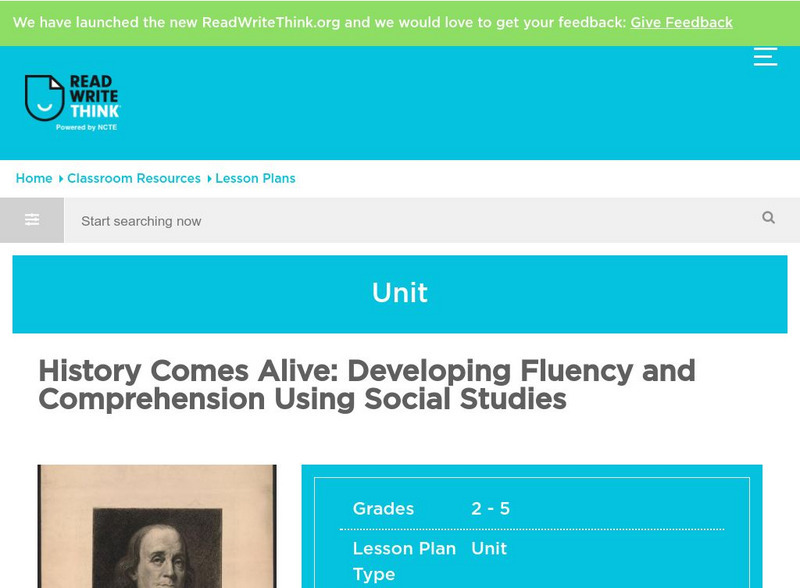
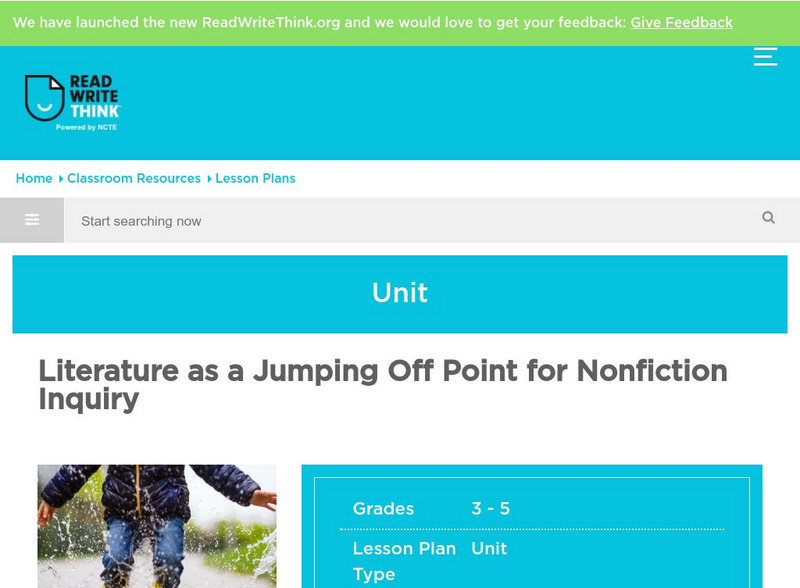


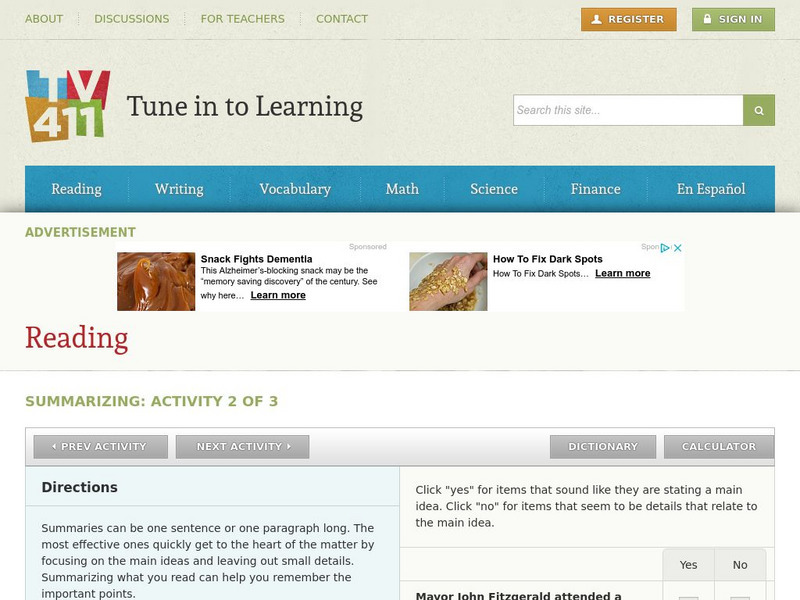







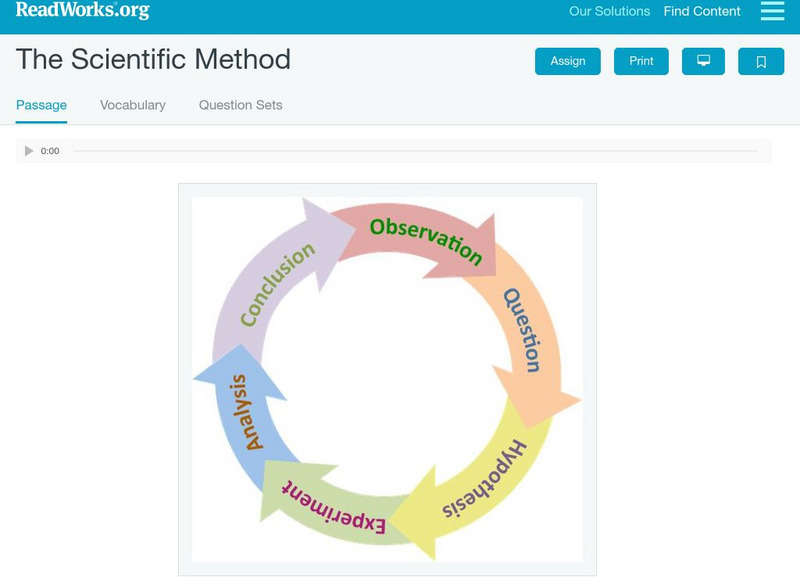
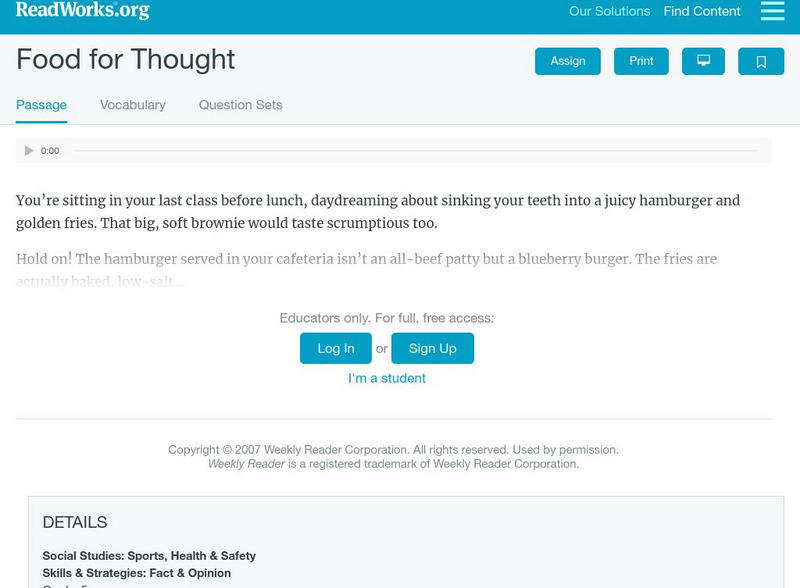
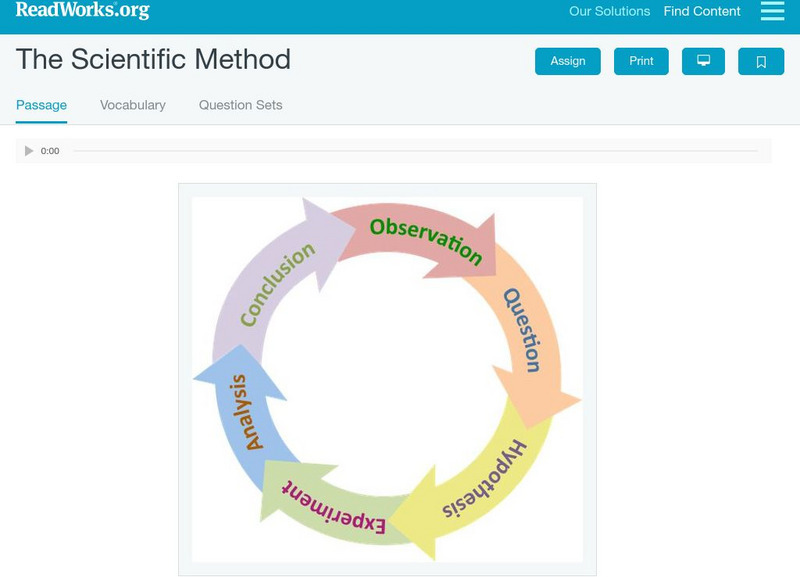
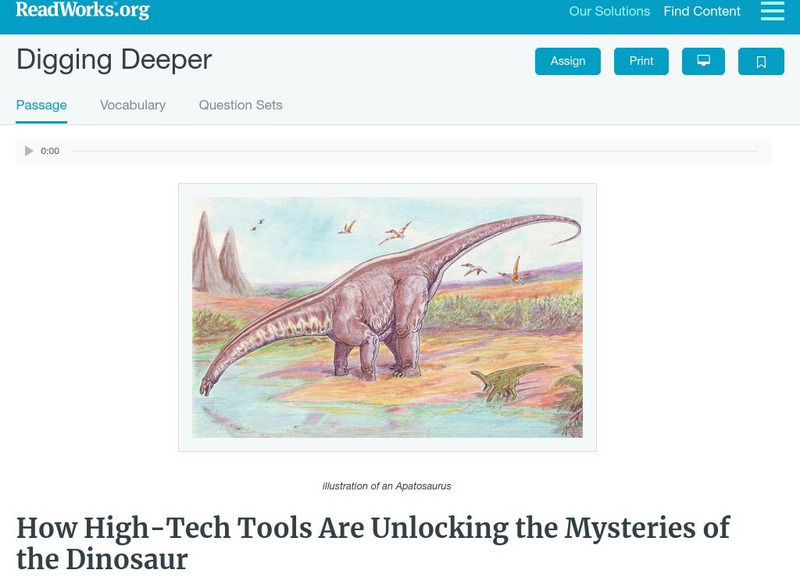


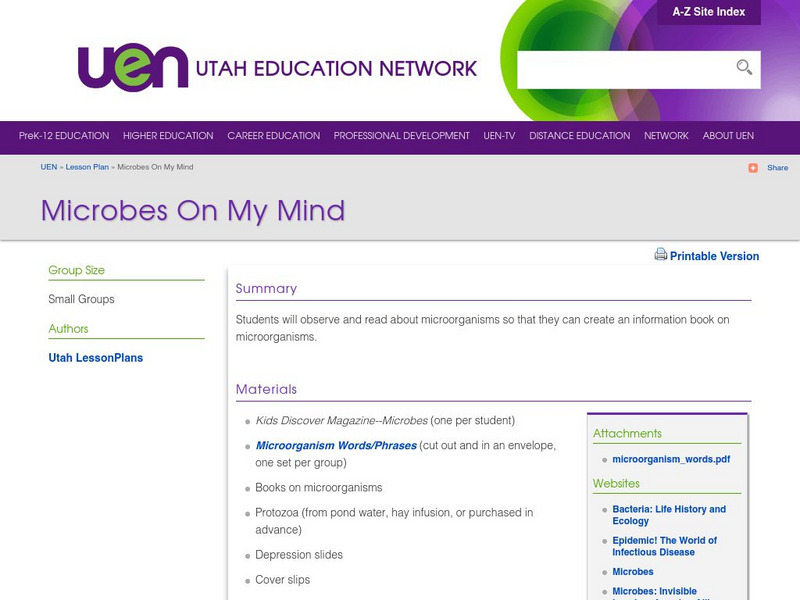


![Holt, Rinehart and Winston: Speaking and Listening Progress [Pdf] Unknown Type Holt, Rinehart and Winston: Speaking and Listening Progress [Pdf] Unknown Type](https://static.lp.lexp.cloud/images/attachment_defaults/resource/large/FPO-knovation.png)
